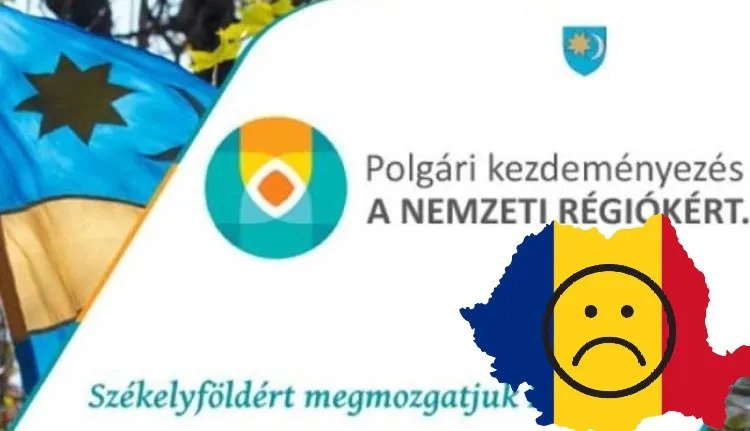The European Court of Justice announced its judgment in the lawsuit that Romania initiated against the European Commission requesting the annulment of the decision on the registration of the European citizens' initiative on the protection of national regions - Balázs Izsák explained the decision. At a press conference in Sepsiszentgyörgy, the President of the Székely National Council reported on the current situation and possible future fate of the national regional citizens' initiative.
Izsák Balázs reminded: Two years ago, on July 8, 2019, Romania initiated legal proceedings against the European Commission, requesting the annulment of the decision on the registration of the European citizens' initiative on the protection of national regions. At that time, the collection of signatures, which has since been successfully completed, had already been going on for two months - if Bucharest's plan had come through, all the work up to that point would have been wasted. By the way, this was the fourth lawsuit initiated from Romania in connection with civil initiatives, which the country loses : in two cases they entered as an intervener, and in two cases as a plaintiff. So far, they've lost everyone. Izsák Balázs , this means a serious loss of prestige, which destroys Romania's foreign policy authority. However, the question is whether the Romanian governments will learn something from this, whether they will awaken in them the desire to recover from the crisis. Balázs Izsák expressed his hope that the Romanian media will break with its previous practice and not hide this development, since Romanian taxpayers have the right to know what their leaders are wasting public money on. "Romania lost the lawsuit, but the real loser is the community of Romanian citizens. On the other hand, the Székely National Council knows the way up," stressed Balázs Izsák.
At the same time, he stated: the goal of the Székely National Council is to achieve the territorial autonomy of Székelyland. They want to achieve this through constitutional means and through dialogue, and the civil initiative, which would serve the economic emancipation of the national regions, also leads to autonomy in the case of Székelyföld. "Nearly one and a half million European citizens support this initiative, our offer to Romania, Spain, Italy and other states, but also to the European Union: instead of confrontation, let's choose the path of development and construction. The understanding of this is hindered not only by majority nationalism, but also by the progressive ideology supporting globalism, which condemns the European Commission to helplessness and renders it incapable of solving crises," emphasized the president of the SZNT.
At Sepsiszentgyörgyi's press conference, he also touched on the further possible fate of the national initiative. As he said, the signatures are currently being verified, three member states - Cyprus, Croatia and Denmark - have not yet sent the decision on this to the European Commission, Romania has already completed the process, but the document has not even been sent from Bucharest. After that, the ball bounces in the initiators' court: they have to decide when to submit the initiative and the draft legislation proposed for adoption to the Commission. Of course, the Commission can decide not to initiate a legislative process in the case, but in this case it must justify its decision. However, during the previous litigation with the Commission, it was possible to learn about possible counter-arguments and evasions, they are all aware of them, and if this scenario were to materialize, the initiators - represented by Balázs Izsák - would have the opportunity to seek legal remedies.
In parallel with all this, they are continuing their previous endeavor: they want to institutionalize the community of national regions - emphasized the president of the SZNT - and they are also consulting with their allies. As Balázs Izsák said, he first discussed a joint strategy with László Tőkés, the president of the Transylvanian Hungarian National Council. The minimum of the draft legislation being prepared is to define and recognize the concept of national regions and make them subject to Community law, regardless of the fact that some regions have different status within their own country, since for example there are regions that have autonomy, the existence of others is not recognized either . the state, such as in the case of Székelyföld. The draft legislation has no upper limit, the initiative would promote the economic emancipation of the national regions, as this also serves the main goal defined by the SZNT, the autonomy of Székelyföld.
Source: 3szek.ro
(Header image: Main Square)












